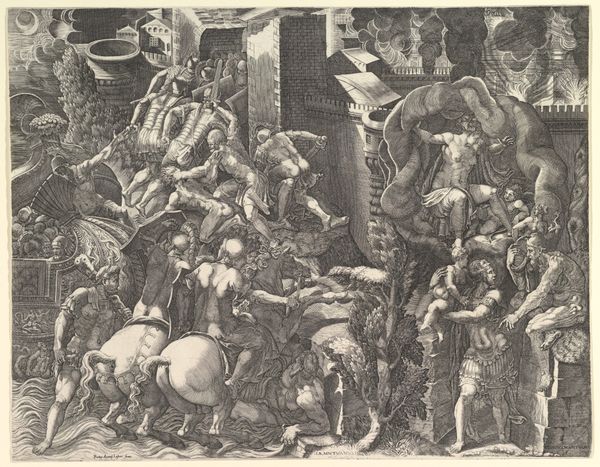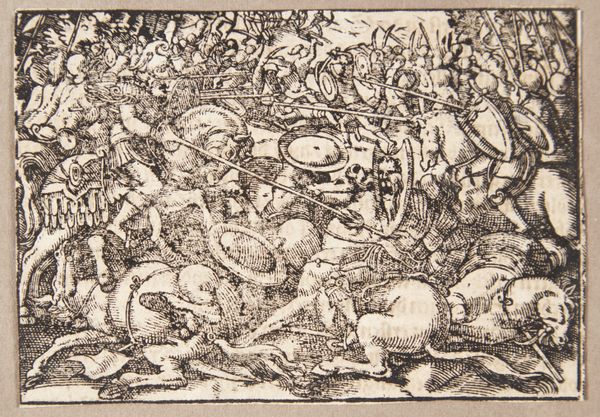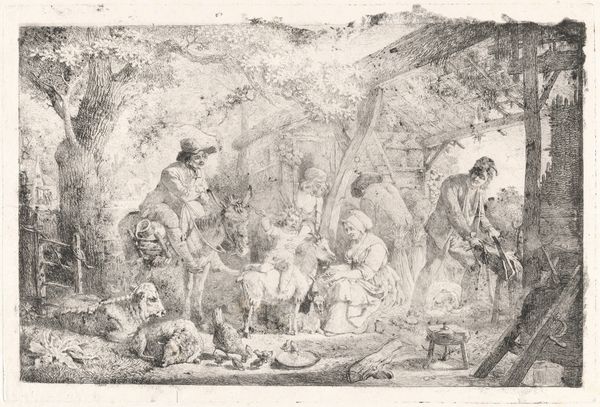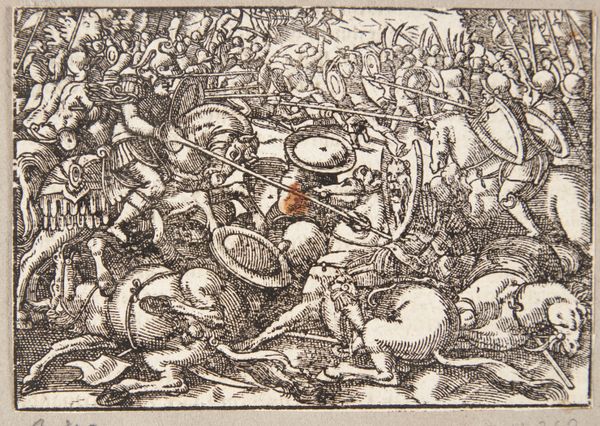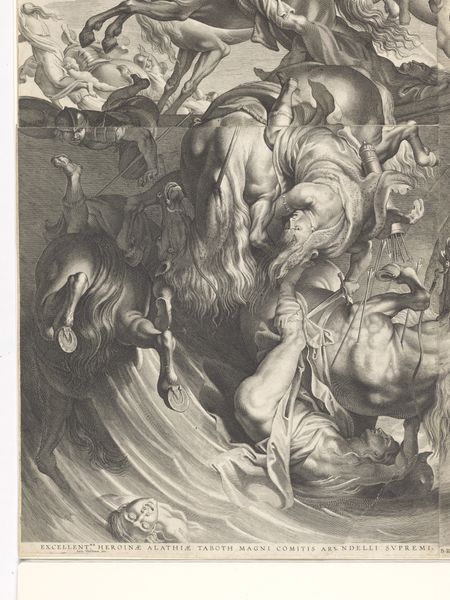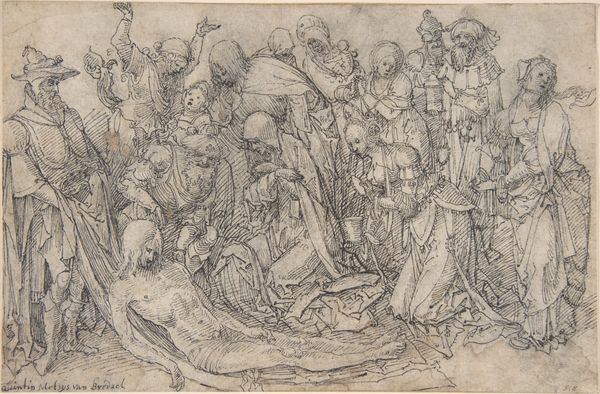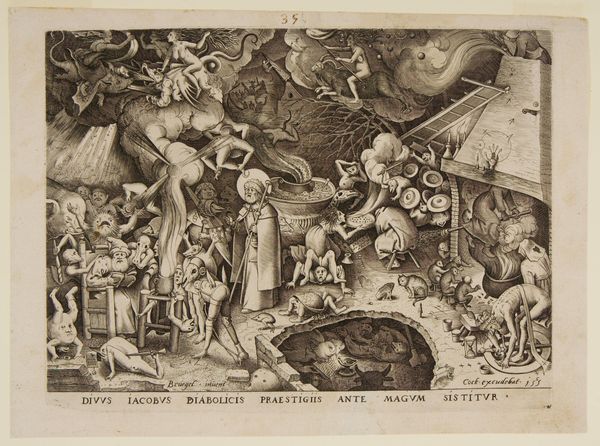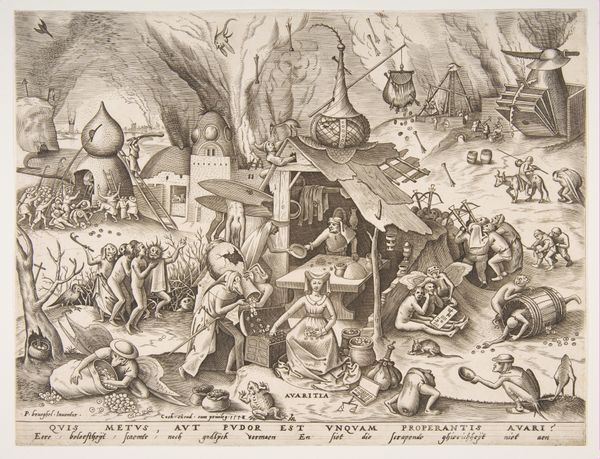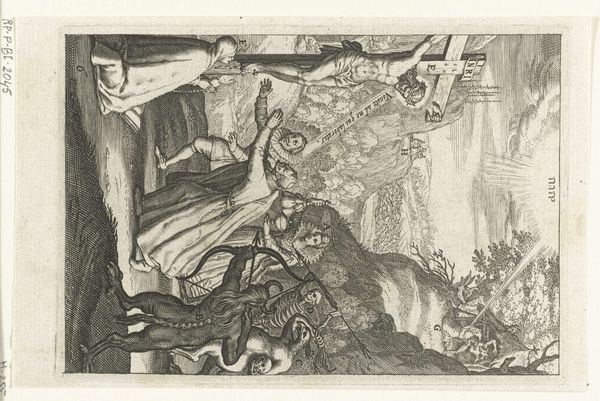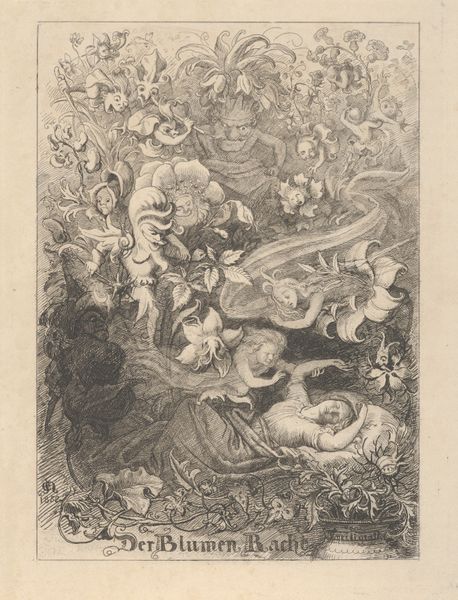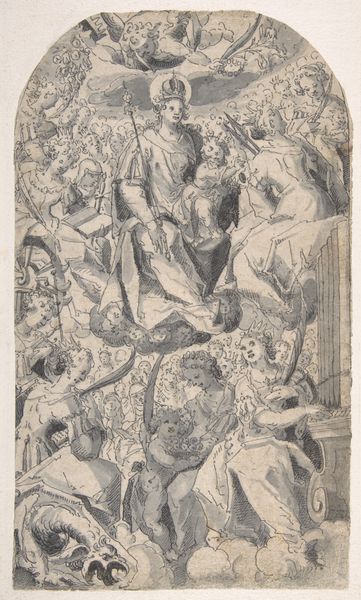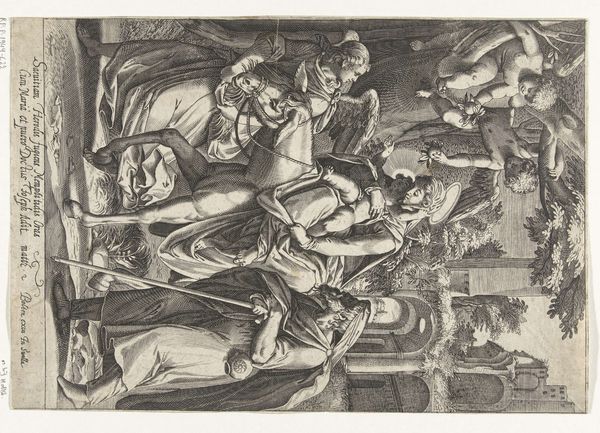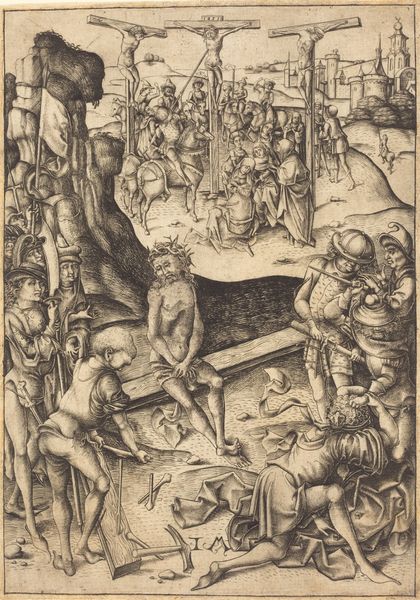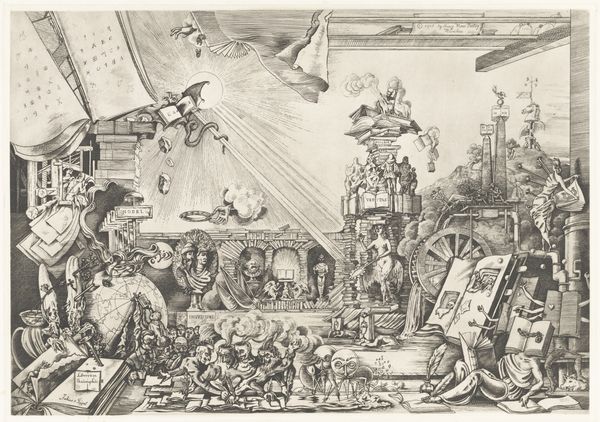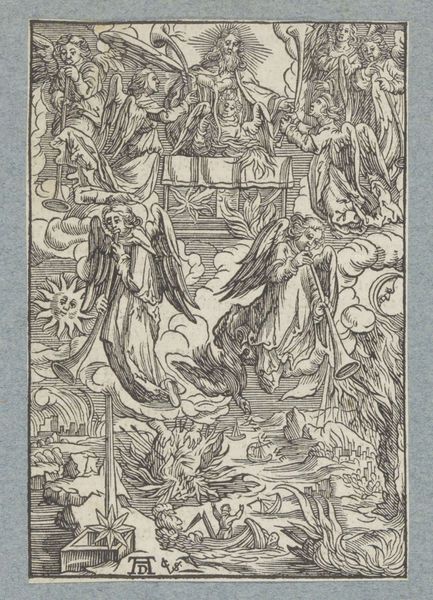
watercolor, hanging-scroll, ink
#
narrative-art
#
asian-art
#
ukiyo-e
#
figuration
#
watercolor
#
hanging-scroll
#
ink
#
watercolor
Dimensions: 20 × 48 in. (50.8 × 121.92 cm) (image)52 × 53 in. (132.08 × 134.62 cm) (mount) (approximate)
Copyright: Public Domain
Aoki Toshio created "Shōki and Demons," using ink and color on silk. The entire composition vibrates with a busy, restless energy, teeming with figures. Light and shadow dance across the surface, enhancing the chaotic feel of the scene. The painting presents a structured inversion. Traditionally, Shōki is a powerful demon slayer, a figure of order. Here, he is overwhelmed by the very demons he is meant to vanquish. Aoki uses this subversion to question established hierarchies, destabilizing the conventional narrative of good versus evil. The chaotic composition and the muted palette further emphasize the disruption of traditional values, inviting viewers to reconsider fixed meanings. Aoki’s work operates as a semiotic system, where familiar symbols are rearranged to generate new interpretations. This approach reflects broader artistic and philosophical concerns of the time, challenging viewers to engage with evolving cultural codes. "Shōki and Demons" thus becomes a space for ongoing interpretation.
Comments
minneapolisinstituteofart about 2 years ago
⋮
A grotto-like space is filled with demons playing musical instruments, arm wrestling, quarrelling, and even, it would seem, preaching. Contemptuously surveying the scene is Shōki, the Queller of Demons. A deity from China’s Daoist pantheon, Shōki became a popular figure associated with Boys’ Day celebrations during Japan’s Edo period. Rather than slaying the demons, as dictated by legend, the artist has cast Shōki as an overlord among his minions. Toshio was a curious character at the center of various stories, some spurious or at least embellished. Born in Yokohama, he travelled to the United States under the auspices of a trading company. There he worked as a travelling artisan, a newspaper cartoonist, an actor, and host of elaborate theme parties. He was also known for his painting. The detailed composition, color, and depth through shading and perspective suggest a familiarity with late Kanō painting, though the theme brings to mind Eugene Delacroix’s painting Death of Sardanapalus (1827).
Join the conversation
Join millions of artists and users on Artera today and experience the ultimate creative platform.
